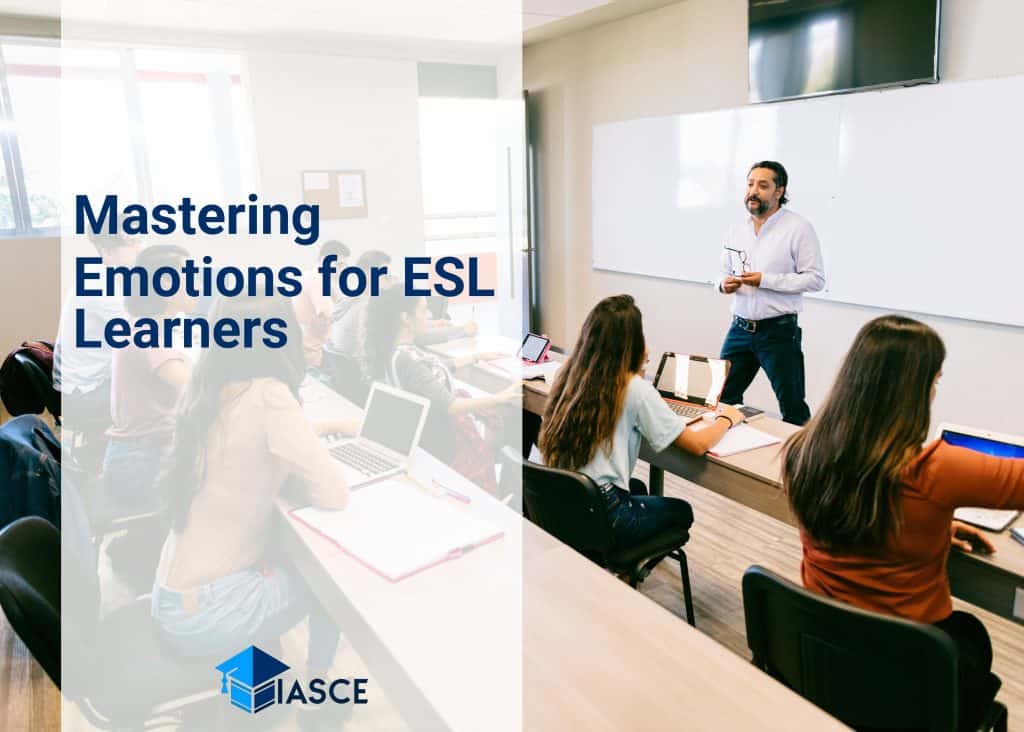Navigating the world of emotions can be a challenge, especially when you’re learning English as a second language (ESL). Understanding and expressing feelings in another tongue isn’t just about vocabulary acquisition; it’s an art that requires mastering nuances, context, and cultural norms.
As an ESL student myself once upon a time, I’ve been through this emotional roller-coaster. That’s why I’m sharing my experiences and tips to help you master this critical aspect of language learning.
In this comprehensive guide, we’ll delve into strategies for recognizing and conveying emotions in English effectively. We’re not just going to cover the basics here – get ready for some deep dives into emotional intelligence in the ESL context!
Understanding the Importance of Emotions in ESL Learning
Let’s dive right into the heart of mastering emotions when learning English as a second language (ESL). Emotions play a crucial role in any learning process, and it’s no different for ESL.
When I talk about ’emotions’, don’t just think about happiness, sadness, or anger. It’s much deeper than that. We’re looking at motivation, self-confidence, anxiety levels – all these inner feelings impact how well someone learns a new language.
First off, motivation is key. Learners who have a strong desire to learn English are likely to invest more time and effort into their studies. They’ll push themselves harder and won’t easily give up when faced with difficulties.
Next up is self-confidence. Feeling confident can significantly enhance one’s ability to grasp a new language. When learners believe they can succeed, they’re more likely to actively participate in class discussions and take risks in speaking the foreign language.
On the flip side of confidence, we have anxiety, which can be quite detrimental to ESL learning if not managed properly. High levels of anxiety might hold back learners from participating fully during lessons or even lead them to avoid using English altogether.
Here are some real-life examples illustrating how emotions can influence an individual’s ESL journey:
| Emotional State | Effect on ESL Learning |
|---|---|
| High Motivation | Increased time and effort invested in studying; greater resilience against obstacles |
| Strong Self-Confidence | Active participation in class; increased willingness to use English outside classroom settings |
| High Anxiety Levels | Hesitation or avoidance of using English; reduced classroom participation |
So there you have it! Now you know why understanding emotions is essential for mastering ESL learning. By recognizing these emotional states within ourselves or our students, we can then design strategies that cater specifically towards enhancing motivation and confidence while minimizing anxiety – paving the way for successful language acquisition.
Practical Techniques to Master Emotions while Studying ESL
As an ESL learner, you’ll often find that emotions play a key role in your learning journey. I’ve discovered that it’s essential to understand and manage these feelings effectively. And yes, there are practical ways to do this!
Firstly, recognize your emotional state. Is frustration creeping in because you can’t grasp the difference between ‘affect’ and ‘effect’? Or perhaps it’s anxiety about speaking English in public? Identifying these emotions is the first step towards mastering them.
Next, learn how to channel these feelings into motivation. Frustrated with those tricky English words? Turn that feeling around! Use it as a driving force to study harder and conquer those challenging vocabulary terms.
Mindfulness, too, is crucial for emotionally balanced learning. Spend some time each day focusing on the present moment without judgment. This practice can reduce stress levels significantly and improve your overall mood – making ESL studies more enjoyable!
A fantastic way of doing this is by incorporating English language podcasts or music into your daily routines. It’s a relaxing way of boosting your language skills.
Here are some additional strategies:
- Regular breaks: Prevent burnout by taking short breaks during your study sessions.
- Exercise: Physical activity helps regulate mood swings and promotes better focus.
- Positive affirmations: Simple self-affirming statements like “I’m getting better at English every day” can boost confidence levels drastically.
From my experience, managing emotions isn’t just beneficial for ESL learners; it’s transformative! Conquering fears, handling frustrations, embracing challenges – all these contribute immensely toward not just language proficiency but also personal growth.
Remember: Learning is an emotional journey as much as an intellectual one – so master those emotions and watch yourself soar in both arenas!
Conclusion: Your Journey Toward Mastering Emotions in ESL
I’m thrilled to see your progress as we’ve journeyed through the world of mastering emotions in English. Recognizing and accurately expressing feelings are key aspects of language learning, and you’re well on your way to doing just that.
There’s so much more richness and color to a conversation when we can accurately convey our emotions. It provides depth not only to our words but also strengthens our connections with others.
But remember, like any other aspect of language learning, this isn’t an overnight process. It takes time and practice, but every step forward is a victory worth celebrating!
Here’s what I suggest for moving forward:
- Remain curious: Look for new ways or words to express emotions.
- Be patient: Allow yourself room for mistakes; they’re part of the learning process.
- Practice consistently: The more you use these emotional expressions, the more natural they’ll become.
In the end, it’s all about making your English conversations as engaging and meaningful as possible. And I believe in you! With persistence and determination, I know you’ll soon be painting vivid pictures with your words, effortlessly expressing your feelings in English.
Always remember – mastering a language opens up an entire world of opportunities. You’re not just learning how to communicate better; you’re broadening your horizons too. So keep going strong on this journey towards mastering emotions in ESL – there’s a whole world waiting for you out there!

